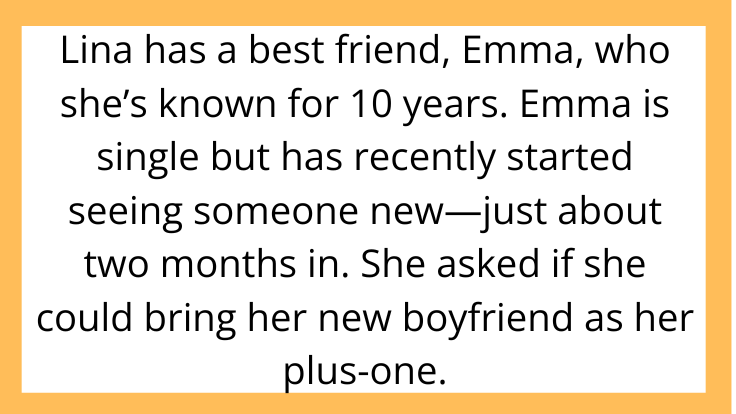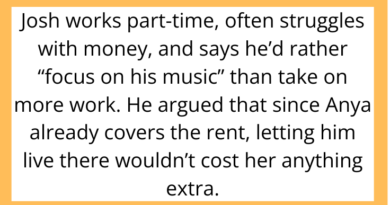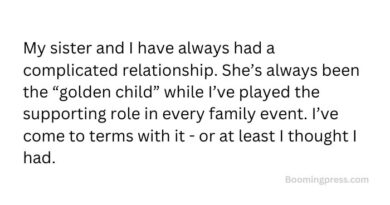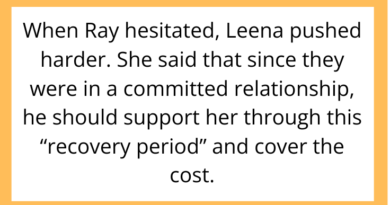AITAH for Not Giving My Best Friend a Plus-One to My Wedding?
Weddings are a time of joy, connection, and (let’s be honest) some inevitable drama. When it comes to drawing the guest list, even the smallest decision can ignite conflict—especially when people feel left out. In today’s AITAH scenario, we explore one bride’s choice that sparked a fallout with someone she thought would understand her best.
Let’s dive into the story and find out—was she truly in the wrong?
The Story: Best Friend, No Plus-One
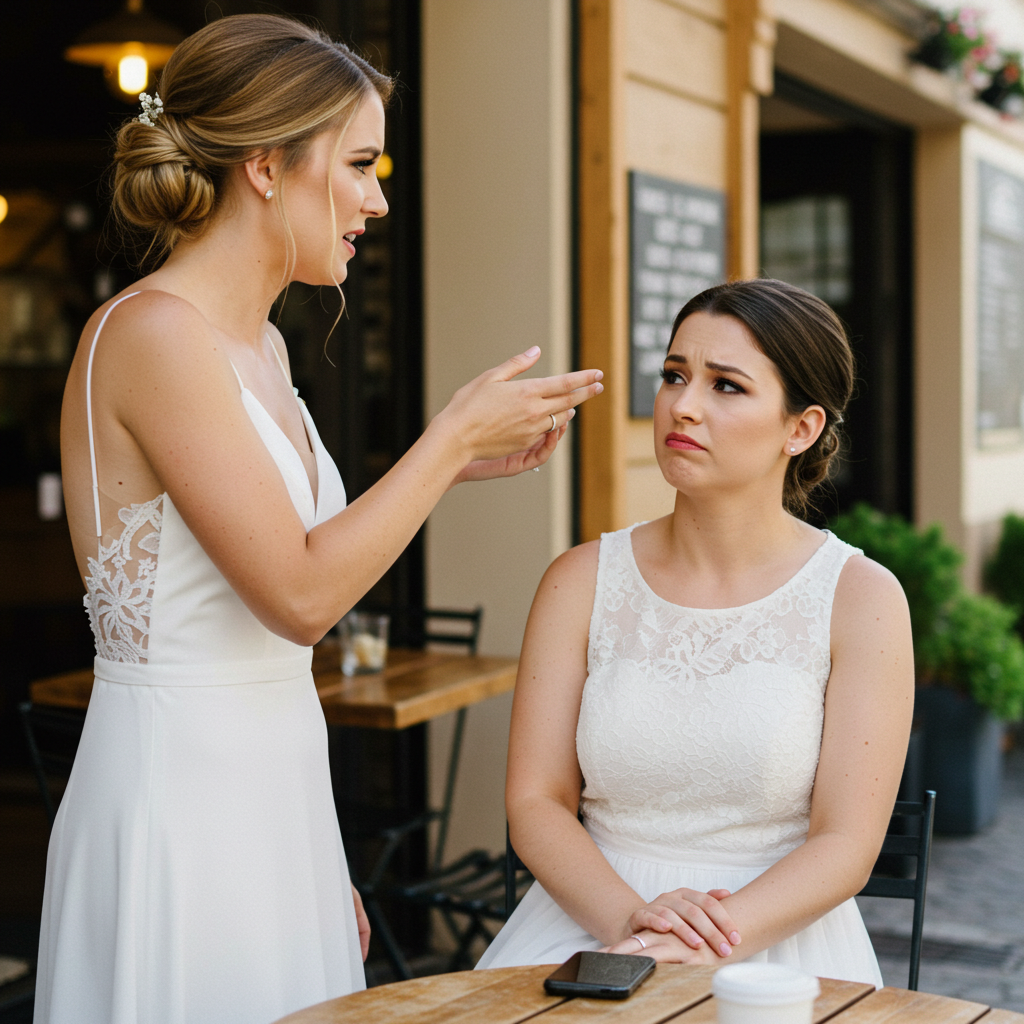
The original poster (we’ll call her Lina) shared her situation on the r/AITAH subreddit. She’s 28, getting married in the fall, and finalizing her guest list. She and her fiancé are paying for the wedding themselves, and the venue has a firm capacity limit. Every guest counts.
Lina has a best friend, Emma, who she’s known for 10 years. Emma is single but has recently started seeing someone new—just about two months in. She asked if she could bring her new boyfriend as her plus-one.
Lina politely declined. Her reasoning was simple: plus-ones were only being offered to long-term partners or spouses. She had extended the same rule to her own cousin, who has been dating someone for just under three months.
But Emma didn’t take it well.
The Fallout: “I Thought I Was Your Best Friend”

Emma reacted with hurt and anger. According to Lina, she accused her of being “inconsiderate” and “stingy,” saying that inviting someone’s partner is basic respect—especially for a best friend.
“You don’t trust me to bring someone decent?” Emma texted her after the call ended.
Lina tried to explain again: it wasn’t personal, it was practical. She couldn’t make exceptions, or she’d be faced with a flood of similar requests. With only 80 seats, she had to be firm.
Still, Emma stopped replying to her messages. She unfollowed Lina on social media and didn’t show up to a mutual friend’s birthday dinner the following weekend.
Now Lina’s wondering—AITAH for not giving my best friend a plus-one to my wedding?
The Debate: Wedding Etiquette vs. Friendship Expectations

Why Lina Might Not Be the Villain
Many commenters on Reddit saw Lina’s point. Weddings are expensive. Venues are strict. And when you’re paying for every guest yourself, you’re forced to make hard decisions.
Some popular responses included:
-
“It’s your wedding, not a casual hangout.”
-
“If she can’t be there for you without a plus-one, maybe she’s not the best friend you thought.”
-
“You applied the rule fairly across the board. That’s what matters.”
The key argument here: Lina’s policy was consistent. No one was being singled out.
Why Emma Might Feel Hurt
On the other side, it’s understandable why Emma felt slighted. Being someone’s best friend often comes with the expectation of exceptions—not just inclusion.
Even if the relationship is new, Emma may have been hoping to enjoy the event with someone by her side—especially if she wouldn’t know many people there. To her, being denied that felt like a lack of consideration.
That emotional response doesn’t make her right—but it does make her human.
Guest Lists Are War Zones (Let’s Be Honest)
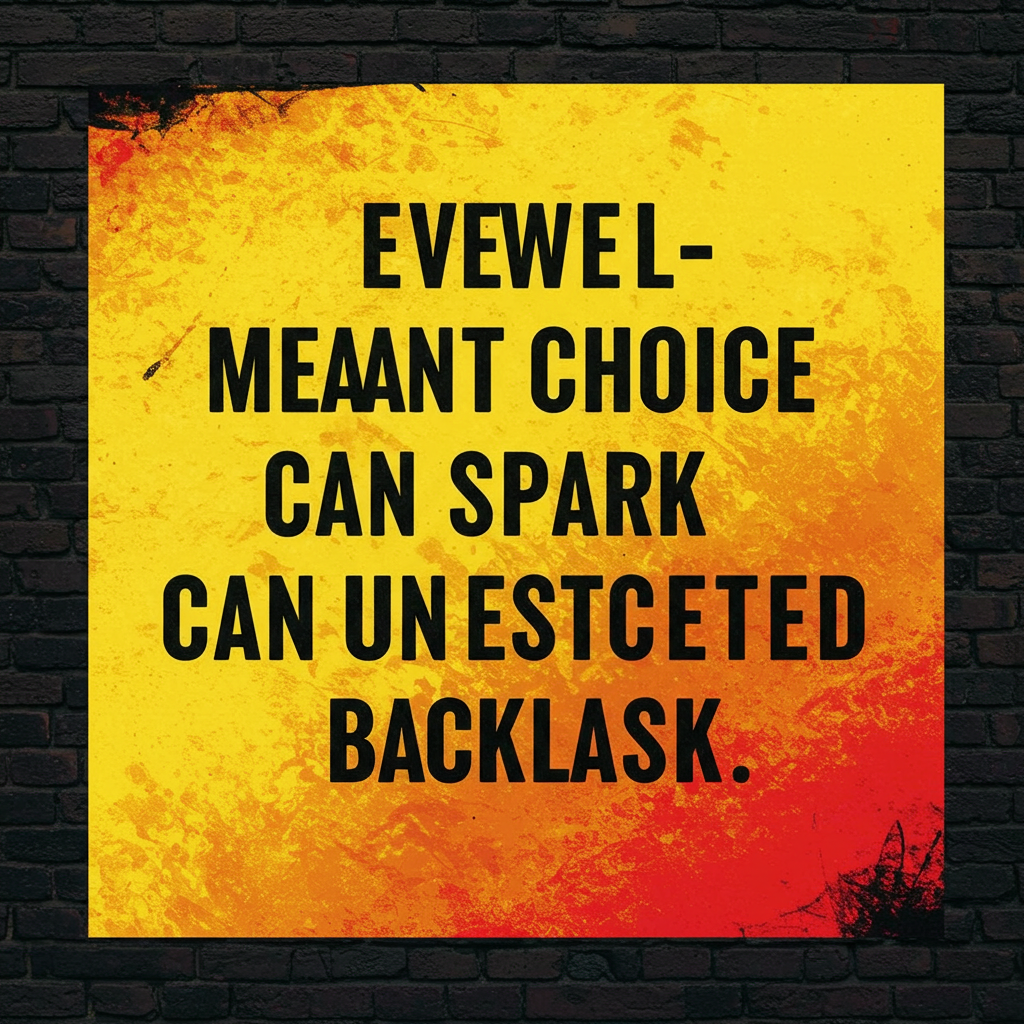
This AITAH scenario highlights how wedding guest lists are emotional minefields. Every choice feels like it could hurt someone, and no matter how fair you try to be, someone may walk away upset.
But fairness and consistency matter. Lina wasn’t targeting Emma—she was sticking to a clearly defined boundary, and it’s one many couples use today.
Let’s not forget: plus-ones aren’t a right. They’re a courtesy. Especially when space is limited and costs are high.
What Could Have Been Done Differently?
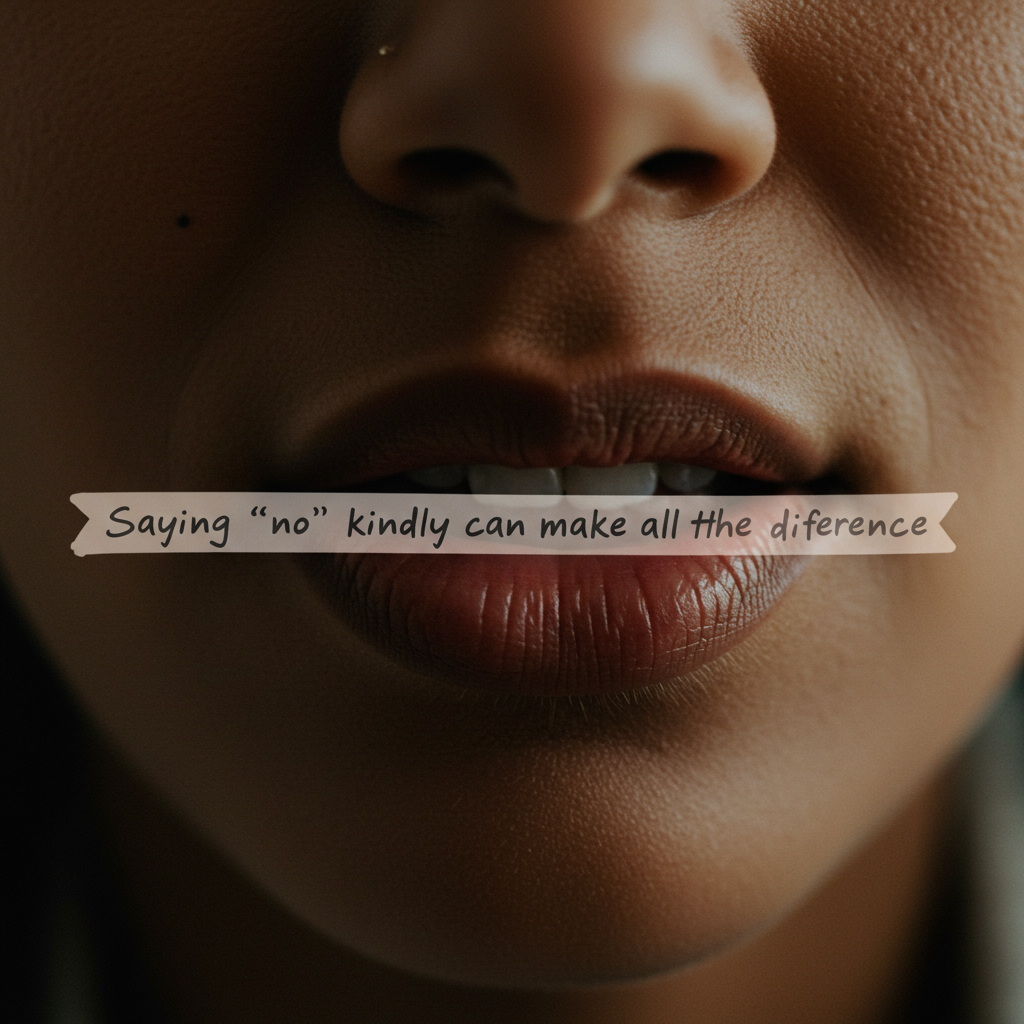
While Lina’s decision was fair, the delivery might have softened the blow. Instead of a flat “no,” she could’ve:
-
Explained the venue limit upfront in a heartfelt way.
-
Reassured Emma she’d seat her with friends so she wouldn’t feel alone.
-
Offered to revisit the situation closer to the date if other RSVPs declined.
Communication doesn’t always change the outcome—but it can change how it’s received.
Final Verdict: Not the Villain

Most people in the r/AITAH thread—and most wedding planning veterans—agree: Lina is not the villain. Setting boundaries, especially around finances and logistics, doesn’t make you selfish. It makes you responsible.
Emma may have reacted emotionally, but her hurt doesn’t automatically make Lina wrong. Weddings aren’t about pleasing everyone. They’re about celebrating love—hopefully with people who understand and support you.
